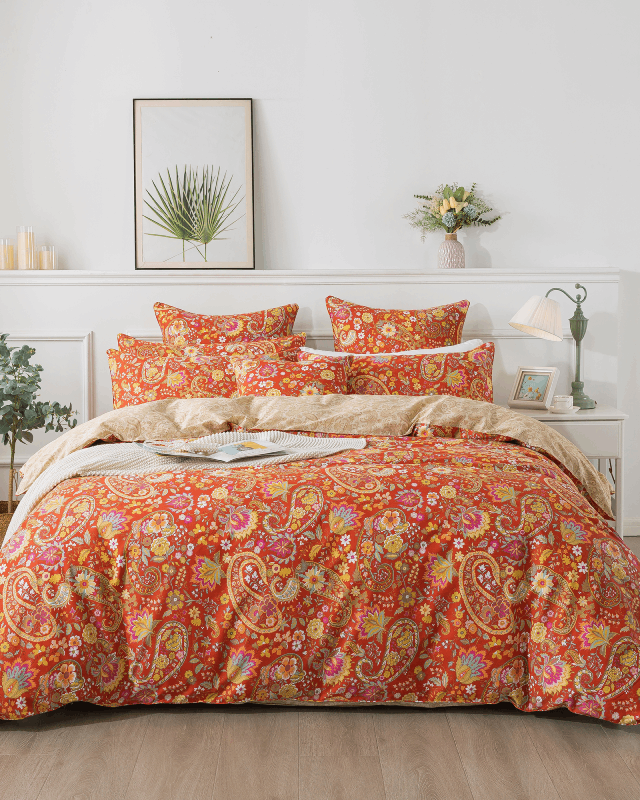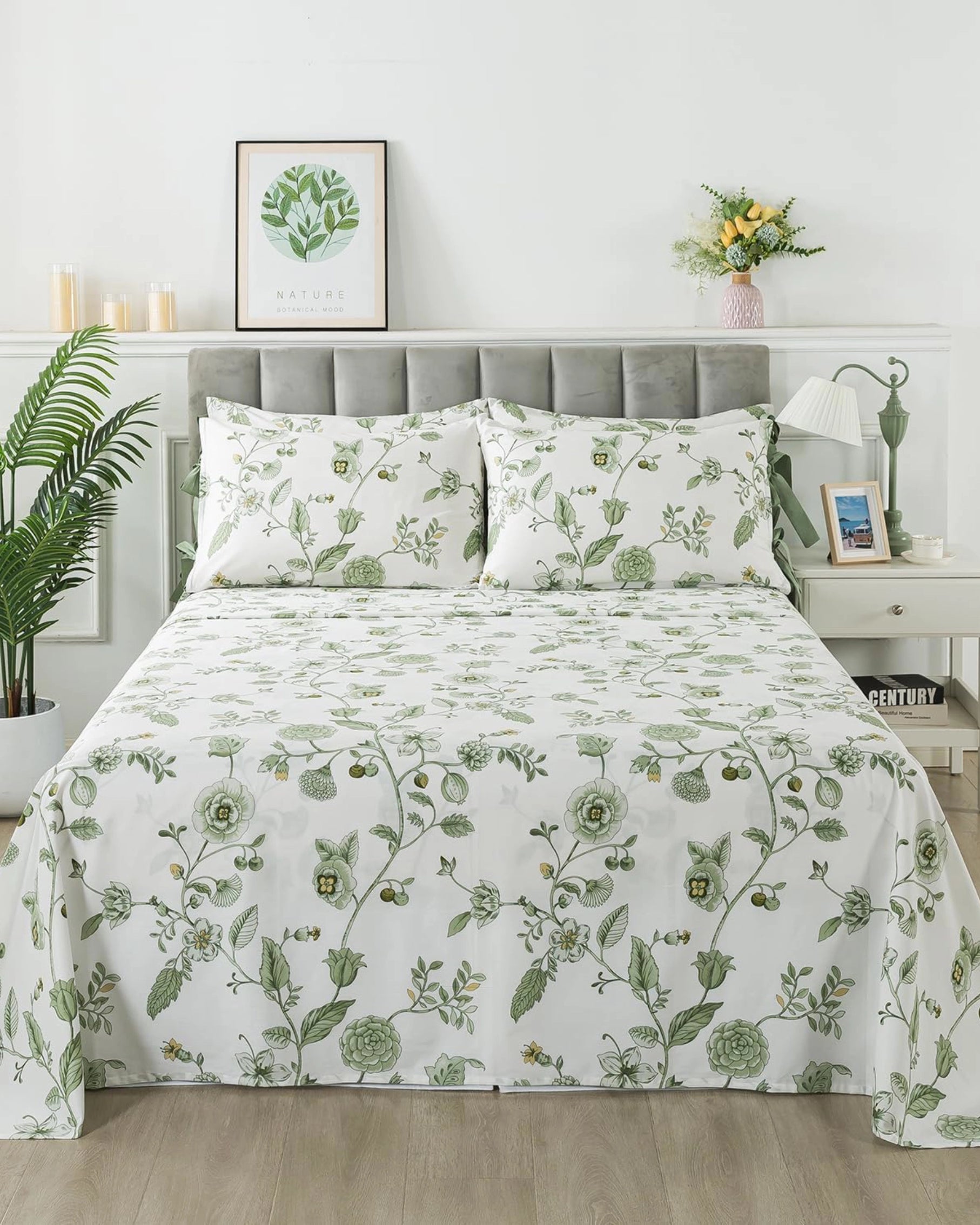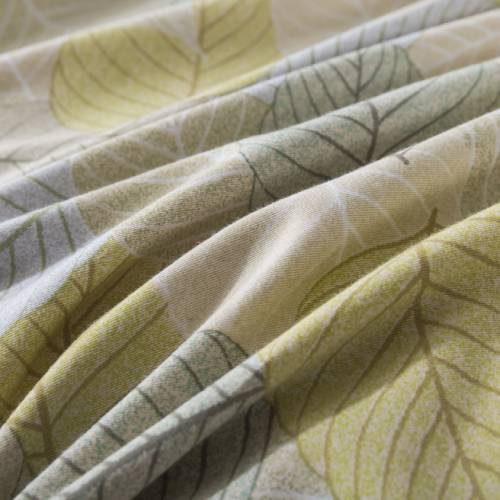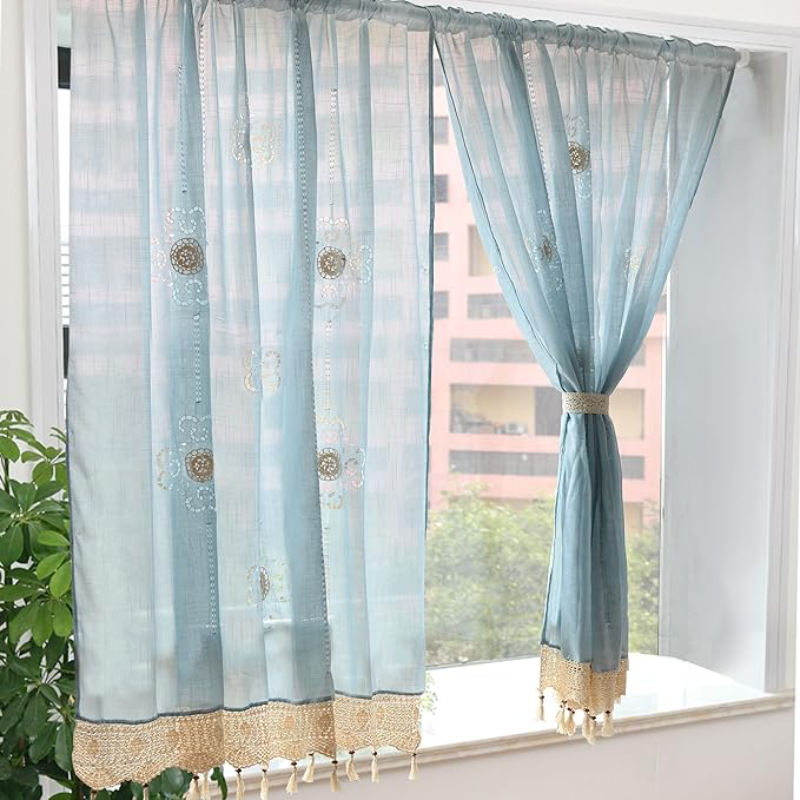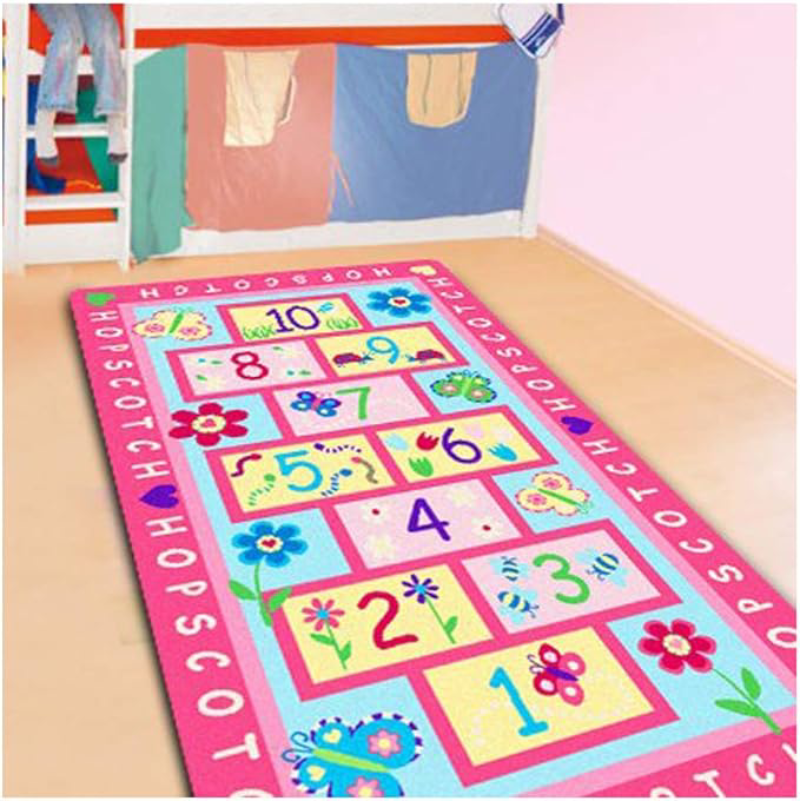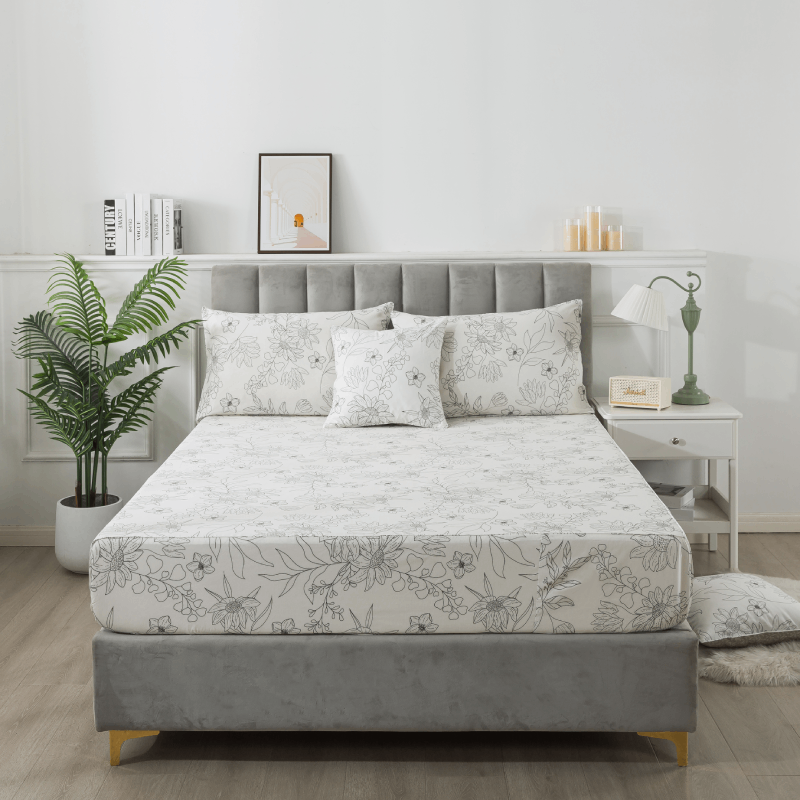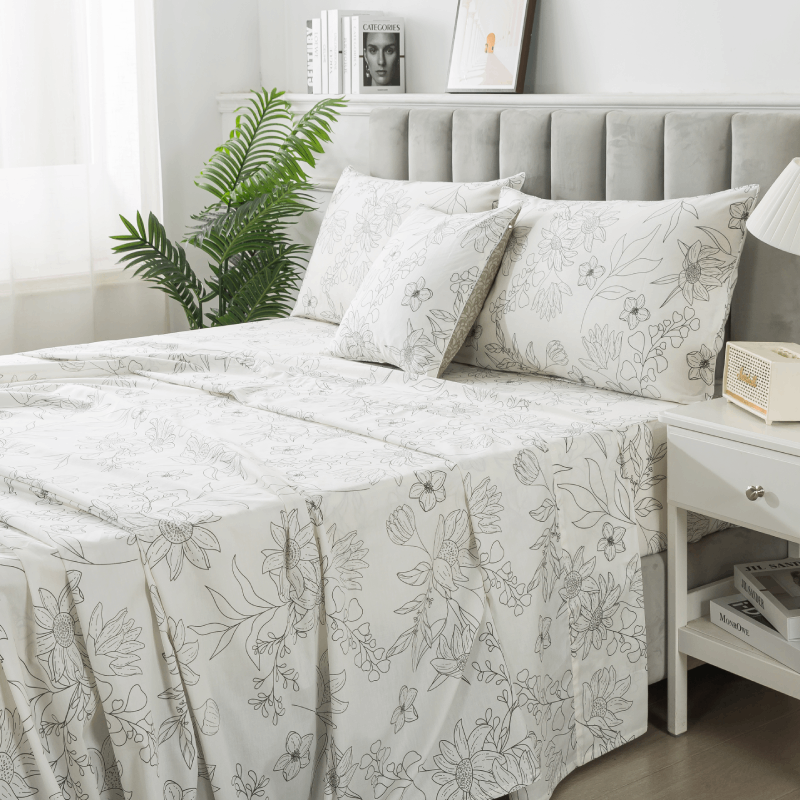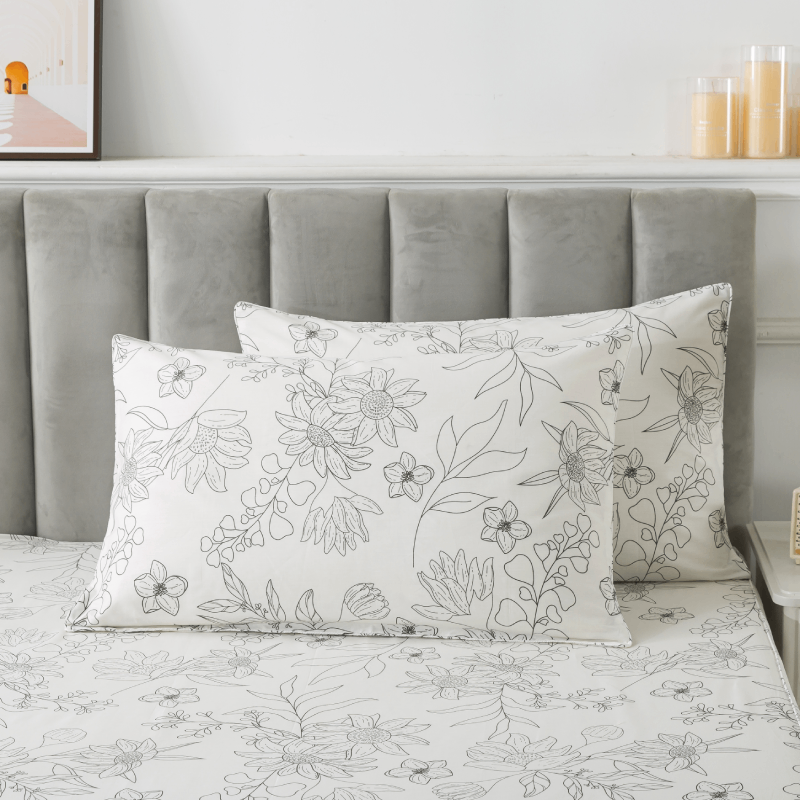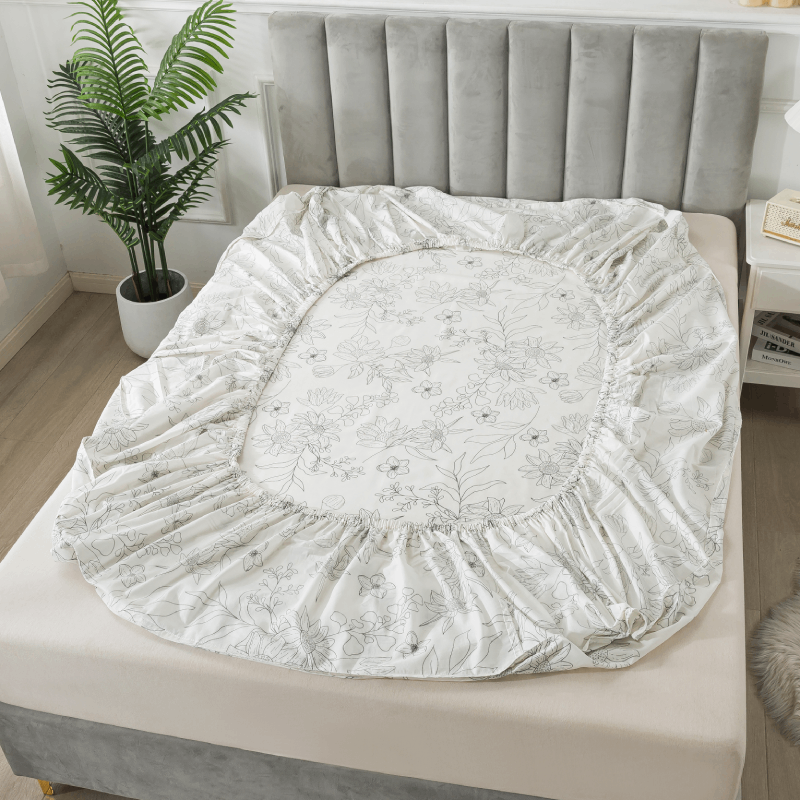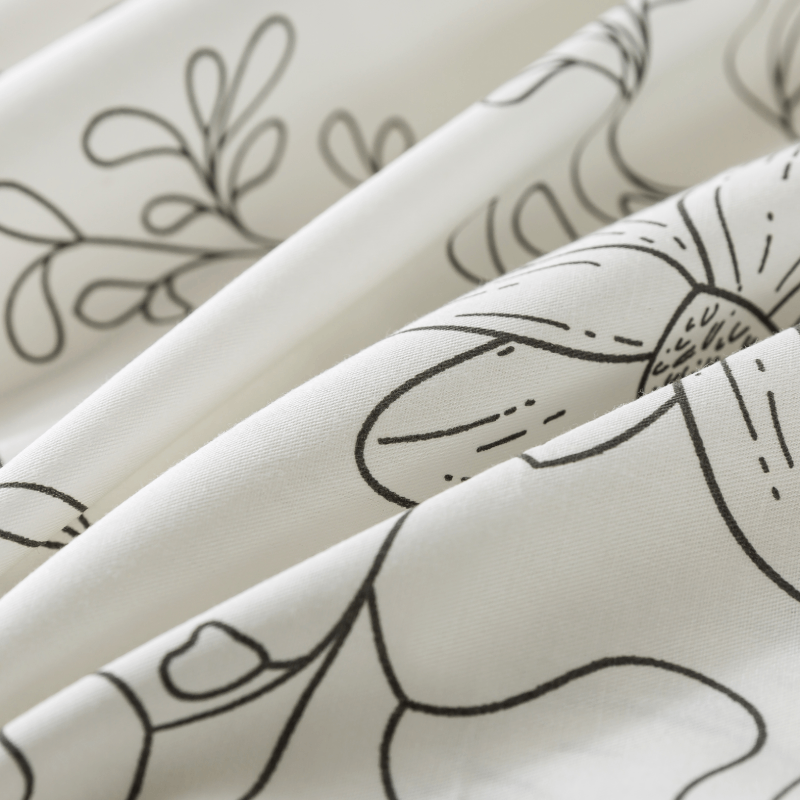Most of us put a lot of thought into choosing the right mattress, pillow, and even the duvet itself. But there's one element of your bedding that often goes unnoticed—and yet plays a vital role in your sleep quality and health: the duvet cover.
You may be tempted to skip the duvet cover, especially if your duvet feels soft and cozy on its own. However, sleeping without a duvet cover can actually be unhygienic, unhealthy, and costly over time.
In this blog, we’ll explain why a duvet cover isn’t just a decorative piece but a necessary part of your sleep environment—and why your health depends on it.
1. Duvets Are Not Meant to Be Washed Frequently
One of the most important reasons to use a duvet cover is simple: your duvet is not designed for regular washing.
Most duvets—especially those filled with down or synthetic fibers—can lose their shape, warmth, and fluffiness if washed too often. Washing a bulky duvet in a home washing machine can also damage the fabric and fill. Plus, drying a duvet thoroughly can take hours, and if not done properly, it can develop mold or mildew inside.
A duvet cover, on the other hand, is lightweight and easy to wash—often with your regular bedding. By using a duvet cover, you protect your duvet from body oils, sweat, dust, spills, and bacteria.
2. Your Skin Will Thank You
Your skin comes into direct contact with your bedding every night. Without a duvet cover, you're sleeping against a surface that accumulates:
-
Dead skin cells
-
Sweat and body oils
-
Bacteria and dust mites
-
Environmental pollutants
Even if your duvet looks clean, it can harbor microscopic irritants that may lead to acne, rashes, or allergic reactions.
A duvet cover acts as a barrier between your skin and the interior filling of the duvet, offering a cleaner, smoother surface that can be easily refreshed.
💡 Tip: Choose duvet covers made from breathable materials like cotton or bamboo to help reduce skin irritation and improve airflow.
3. Dust Mites and Allergens Thrive in Uncovered Duvets
Dust mites feed on dead skin cells and thrive in warm, humid environments—like your bed. Without a duvet cover, your duvet becomes a perfect breeding ground for them.
According to the Asthma and Allergy Foundation of America, dust mite droppings are a leading cause of indoor allergies, especially for children and people with asthma.
Using a duvet cover, especially one that’s hypoallergenic or tightly woven, significantly reduces the risk of allergen buildup. Regular washing of the cover helps eliminate mites, pollen, and other irritants, making your sleep space much safer and cleaner.
4. You’re Exposing Yourself to Mold and Bacteria
Sweat doesn’t just evaporate—it soaks into your bedding. Over time, moisture trapped in an uncovered duvet can become a breeding ground for mold, mildew, and bacteria.
This is particularly risky if you live in a humid climate or if your home has limited ventilation.
Signs that your duvet may be harboring bacteria include:
-
A musty odor
-
Discoloration or yellowing
-
Sneezing or skin irritation after waking up
A duvet cover absorbs moisture and can be regularly cleaned to keep these harmful elements at bay.

5. Duvet Covers Regulate Temperature More Effectively
Modern duvet covers are made with smart fabrics that not only protect your duvet but also help regulate body temperature. Materials like cotton, linen, or bamboo offer breathability, moisture-wicking properties, and comfort throughout the year.
Without a duvet cover, your duvet may trap too much heat or not insulate properly—leading to night sweats, tossing and turning, or poor sleep quality.
💤 Want a better night’s sleep? A breathable and lightweight duvet cover can make a big difference in keeping you cool in summer and warm in winter.
6. It’s More Hygienic for Couples and Children
If you share a bed with a partner or co-sleep with children, the hygiene factor becomes even more critical. With multiple bodies under the same duvet, there’s more sweat, more skin contact, and more potential for germ transfer.
7. Extends the Life of Your Duvet
A good duvet isn’t cheap—especially one filled with premium down or eco-friendly materials. Why risk damaging or shortening its lifespan by using it without a protective layer?
A duvet cover acts like a shield, guarding your investment from stains, tears, and wear-and-tear. Many covers also come with corner ties or zipper closures to keep everything in place and prevent bunching or shifting.
By using a duvet cover, you can keep your duvet looking and feeling new for years.
8. Aesthetic and Customization Benefits
While health should be your primary concern, let’s not forget the styling perks of duvet covers. You can change the look of your bedroom with the seasons, your mood, or holidays without buying a whole new comforter.
Choose from floral prints, solid colors, minimal styles, or playful patterns to create a sleep space that matches your personality.
✨ Ready to upgrade your bedding? Browse our breathable, washable duvet cover sets designed for cleaner, healthier sleep.
Final Thoughts
Sleeping without a duvet cover might seem harmless, but it can have serious implications for your health, hygiene, and comfort. From skin breakouts and allergens to mold and unnecessary duvet damage, there are many reasons to invest in a quality duvet cover.
It's a simple change that offers big benefits. So the next time you make your bed, think twice before skipping the cover—your body (and your budget) will thank you.

